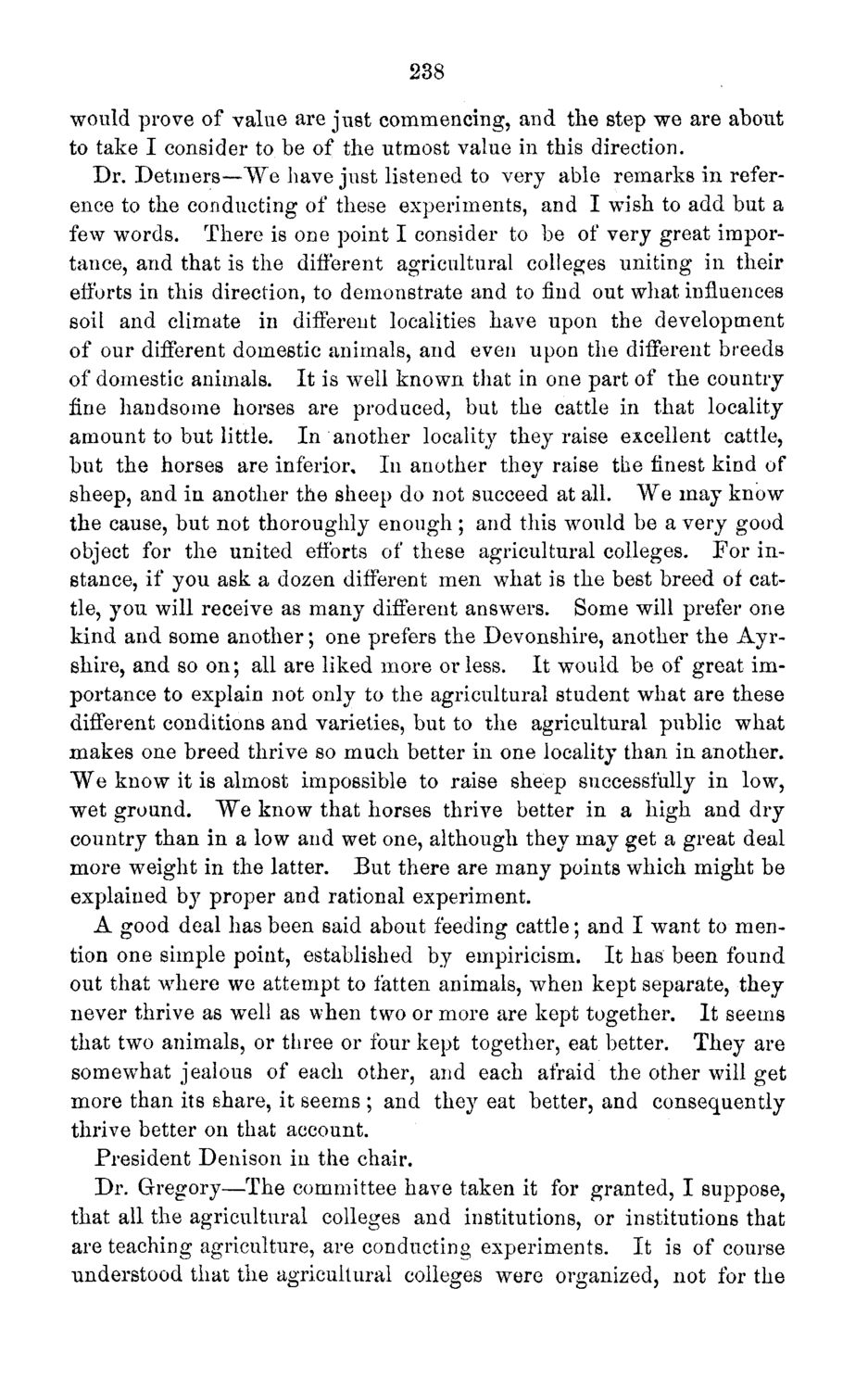| |
| |
Caption: Board of Trustees Minutes - 1871
This is a reduced-resolution page image for fast online browsing.

EXTRACTED TEXT FROM PAGE:
238 would prove of value are just commencing, and the step we are about to take I consider to be of the utmost value in this direction. Dr. Detmers—We have just listened to very able remarks in reference to the conducting of these experiments, and I wish to add but a few words. There is one point I consider to be of very great importance, and that is the different agricultural colleges uniting in their efforts in this direction, to demonstrate and to find out what influences soil and climate in different localities have upon the development of our different domestic animals, and even upon the different breeds of domestic animals. It is well known that in one part of the country fine handsome horses are produced, but the cattle in that locality amount to but little. In another locality they raise excellent cattle, but the horses are inferior. In another they raise the finest kind of sheep, and in another the sheep do not succeed at all. We may know the cause, but not thoroughly enough; and this would be a very good object for the united efforts of these agricultural colleges. For instance, if you ask a dozen different men what is the best breed of cattle, you will receive as many different answers. Some will prefer one kind and some another; one prefers the Devonshire, another the Ayrshire, and so on; all are liked more or less. It would be of great importance to explain not only to the agricultural student what are these different conditions and varieties, but to the agricultural public what makes one breed thrive so much better in one locality than in another. W e know it is almost impossible to raise sheep successfully in low, wet ground. We know that horses thrive better in a high and dry country than in a low and wet one, although they may get a great deal more weight in the latter. But there are many points which might be explained by proper and rational experiment. A good deal has been said about feeding cattle; and I want to mention one simple point, established by empiricism. It has been found out that where we attempt to fatten animals, when kept separate, they never thrive as well as when two or more are kept together. It seems that two animals, or three or four kept together, eat better. They are somewhat jealous of each other, and each afraid the other will get more than its share, it seems ; and they eat better, and consequently thrive better on that account. President Denison in the chair. Dr. Gregory—The committee have taken it for granted, I suppose, that all the agricultural colleges and institutions, or institutions that are teaching agriculture, are conducting experiments. It is of course understood that the agricultural colleges were organized, not for the
| |